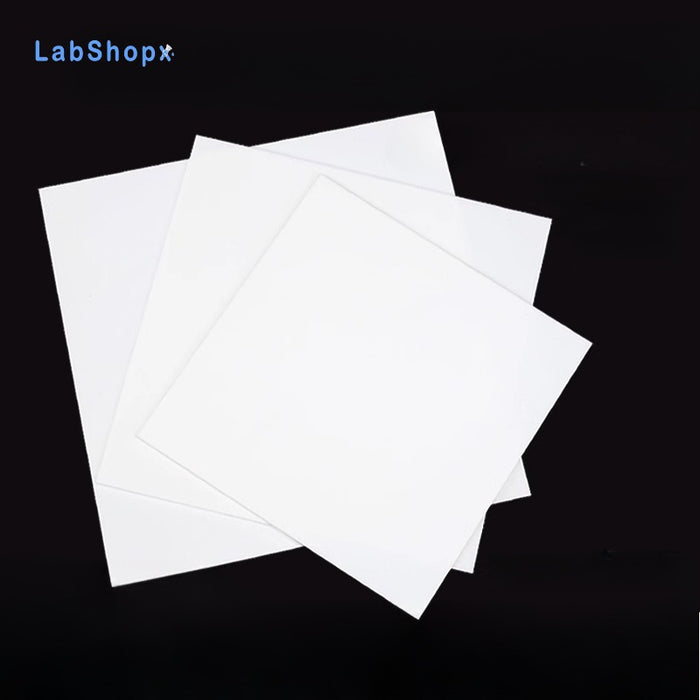

Alumina Substrates Description:
- Type:Alumina Ceramic Substrates
- Material:96%Alumina Crucibles Ceramic Alumina Substrates
- Handle high temperatures:1600-1750°c
- Customize:If you need others size,we can customize as your size.E-mail us at info@labshopx.com
- Import duties or taxes are not included in the item price or shipping charges. These charges are the buyer's responsibility.

Advantages of Alumina Substrates:
Alumina substrates offer a compelling combination of properties that make them ideal for a wide range of applications. Here are six key advantages:
-
Cost-Effectiveness: Alumina substrates provide excellent value, offering a compelling balance of performance and price compared to other substrate materials with similar properties. This makes them a cost-effective choice for many applications.
-
High Mechanical Strength and Durability: These substrates exhibit excellent mechanical strength and resistance to shock and vibration. This robustness makes them well-suited for demanding environments and applications where durability is critical.
-
High Thermal Stability (Low Thermal Expansion): Alumina substrates have a low coefficient of thermal expansion (CTE). This means they maintain their dimensional stability even when subjected to temperature fluctuations, making them ideal for applications requiring precise tolerances and consistent performance across a range of temperatures.
-
High-Temperature Resistance: Alumina substrates demonstrate exceptional high-temperature resistance. With an alumina content of 99% or greater (Al2O3 ≥ 99%), they can withstand prolonged exposure to temperatures up to 1600°C. This makes them suitable for high-temperature applications such as furnace components and heat sinks.
-
Excellent Electrical Insulation: These substrates possess high electrical resistivity and a dielectric constant of approximately 10. This makes them excellent insulators, suitable for high-voltage applications and electronic components where electrical isolation is essential.
- Chemical Inertness and Corrosion Resistance: Alumina substrates are highly resistant to a wide range of chemicals, including acids, alkalis, and solvents. This chemical inertness makes them suitable for harsh environments and applications where exposure to corrosive substances is a concern.

Alumina Substrate Properties:
| Property | 96% Alumina | 99% Alumina | |
| Physical Properties | Bulk Density(g/cm3) | 3.6 | 3.9 |
| Hardness(Mohs) | 9 | 9 | |
| Water Absorption | 0 | 0 | |
| Bending Strength(MPa) | 340 | 360 | |
| Mechanical Properties | Flexural Strength(MPa) | 320 | 370 |
| Compressive Strength(MPa) | 220 | 370 | |
| Poisson's Ratio | 0.23 | 0.23 | |
| Thermal Properties | Coefficient of Thermal Expansion (20°C - 500°C) 10-6/℃ | 7.2 | 8 |
| Thermal Conductivity(w/m.k) | 24 | 30-32 | |
| Specific Heat*10-3J/(kg*K) | 778 | 750-800 | |
| Electrical Properties | Dielectric Constant (1MHz) | 9.4 | 9.9 |
| Dielectric loss angle*10-4 | 5 | 1 | |
| Volume Resistivity*106V/m | 15 | 15 |



